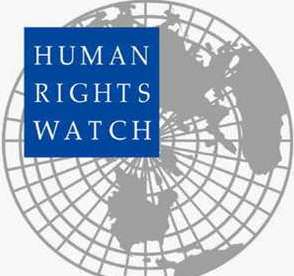Hundreds of Ethiopian-Americans marched together on Tuesday in protest against the Tigrayan People’s Liberation Front (TPLF) party in their home country — and the U.S.’s lack of response to political repression in Ethiopia.
Author: admin
Peaceful Protesters Gunned Down in Ethiopia
 The Ethiopia’s ruling party coalition won all 547 parliamentary seats in the 2015 elections, due in part to the lack of space for critical voices. Authorities use arbitrary arrests and politically motivated prosecutions to silence journalists, bloggers, protesters, and perceived supporters of opposition parties. Security forces respond to peaceful protests with excessive force, and detainees routinely allege torture and ill-treatment. Repressive laws restrict nongovernmental activity. The government has not adequately investigated allegations of abuses associated with its “villagization program,” or the development of sugar plantations in the Lower Omo Valley affecting 200,000 indigenous people, both of which benefitted directly or indirectly from donor assistance.
The Ethiopia’s ruling party coalition won all 547 parliamentary seats in the 2015 elections, due in part to the lack of space for critical voices. Authorities use arbitrary arrests and politically motivated prosecutions to silence journalists, bloggers, protesters, and perceived supporters of opposition parties. Security forces respond to peaceful protests with excessive force, and detainees routinely allege torture and ill-treatment. Repressive laws restrict nongovernmental activity. The government has not adequately investigated allegations of abuses associated with its “villagization program,” or the development of sugar plantations in the Lower Omo Valley affecting 200,000 indigenous people, both of which benefitted directly or indirectly from donor assistance.
for more HERE
A Generation Is Protesting’ in Ethiopia, Long a U.S. Ally
Is Ethiopia about to crack?
For the last decade, it has been one of Africa’s most stable nations, a solid Western ally with a fast-growing economy. But in recent months, antigovernment protests have convulsed the country, spreading into more and more areas. In the last week alone, thousands of people stormed into the streets, demanding fundamental political change.
The government’s response, according to human rights groups, was ruthless. Witnesses said that police officers shot and killed scores of unarmed demonstrators. Videos circulating from protests thought to be from late last year or earlier this year show security officers whipping young people with sticks as they are forced to perform handstands against a wall. The top United Nations human rights official is now calling for a thorough investigation.
“It was always difficult holding this country together, and moving forward, it will be even harder,” said Rashid Abdi, the Horn of Africa project director for the International Crisis Group, a research organization.
Ethiopia is the second most populous nation in Africa, after Nigeria, and its stability is cherished by the West. American military and intelligence services work closely with the Ethiopians to combat terrorist threats across the region, especially in Somalia, and few if any countries in Africa receive as much Western aid.
Ethiopia’s economy has been expanding at an impressive clip. Its infrastructure has improved drastically — there is even a new commuter train in the capital, Addis Ababa. And its streets are typically quiet, safe and clean. Though Ethiopia has hardly been a paragon of democracy — human rights groups have constantly cited the government’s repressiveness — opposition within the country had been limited, with dissidents effectively silenced. Many have been exiled, jailed, killed or driven to the far reaches of the desert.
But that may be changing.
for more The New York Times
UN calls for probe into Ethiopia protesters killings
The UN human rights chief has urged Ethiopia to allow international observers to investigate the killings of 90 protesters in restive regions at the weekend.
